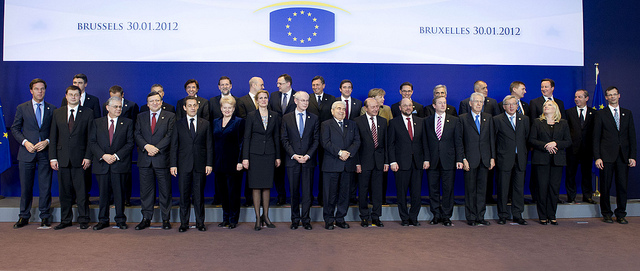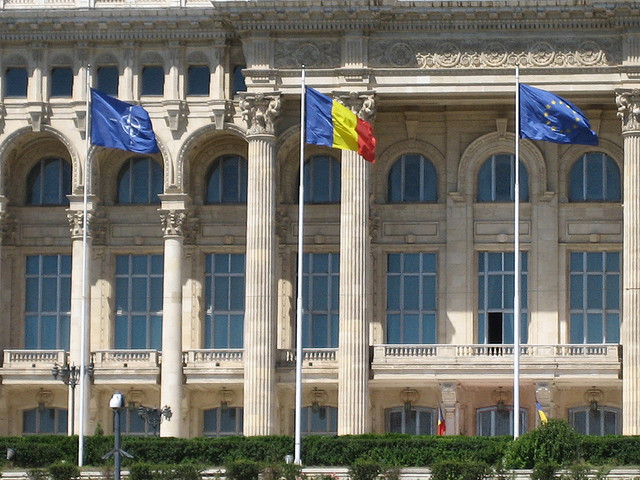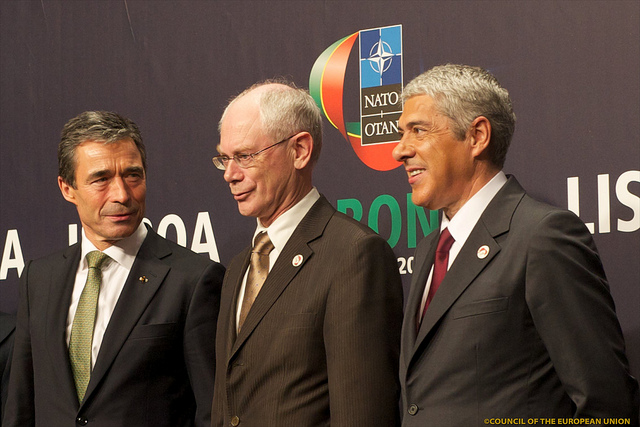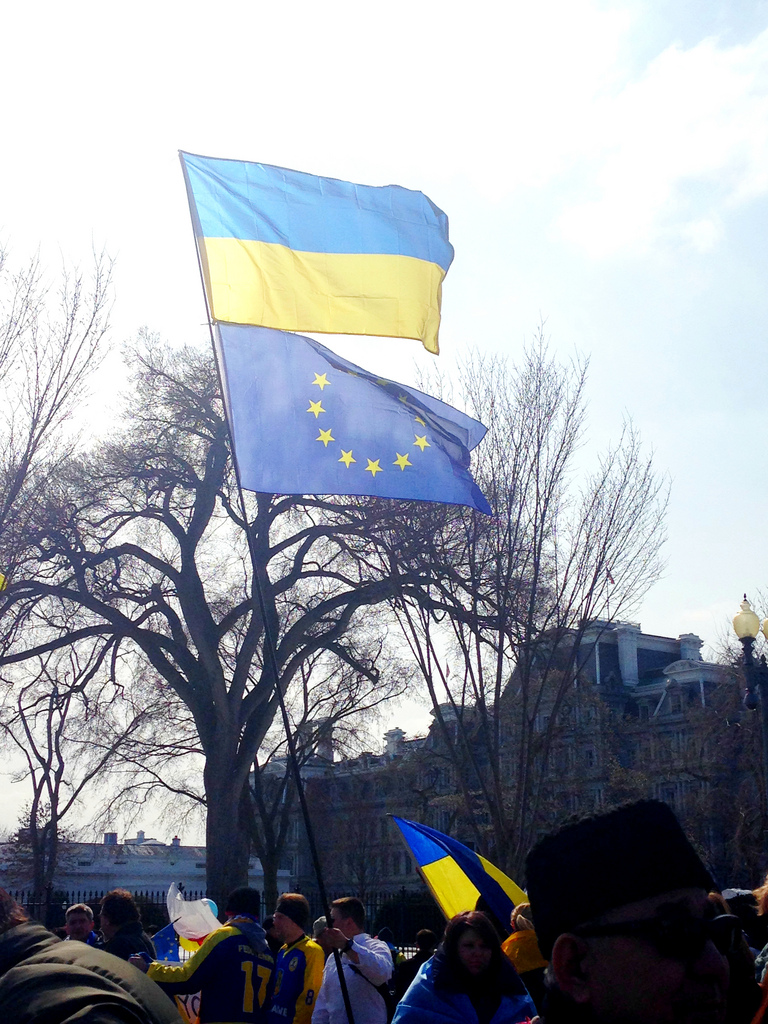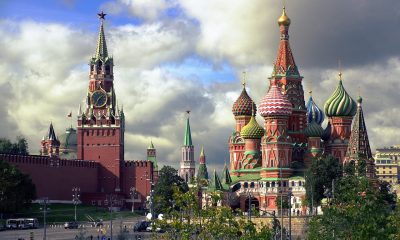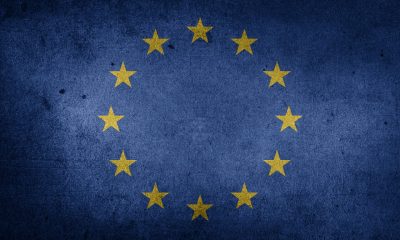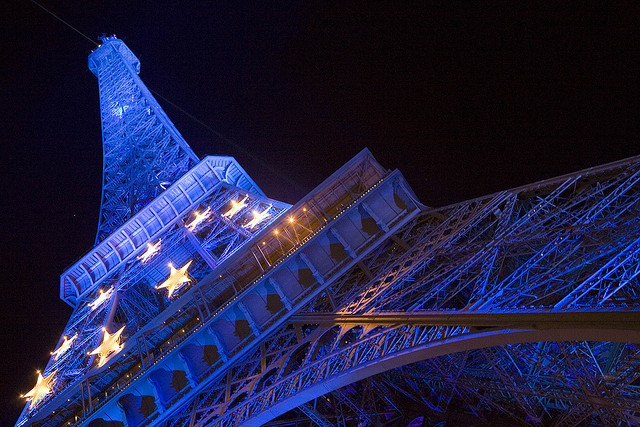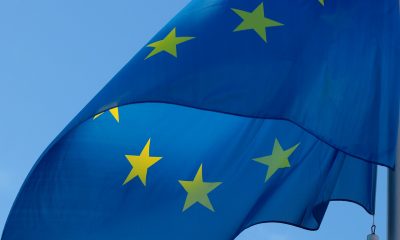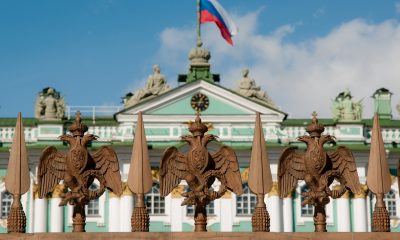Europe
EU Enlargement: Security Considerations
The very recent results of the EU Parliamentary elections should determine us to reflect on the success of the European project so far. A large proportion of the good results the radical right and left obtained have to do with the frustration and fears that member states’ citizens share in relation to the federalist idea. More than this, the propaganda and mythology associated with the damage that the enlargement waves brought to the Union, especially in security terms are to be ‘blamed’ for the rebellious voting behaviour.
Whenever it comes to discuss about the enlargement process of the EU and the security it brought with it, a strong debate emerges between promoters and skeptics. In this short writing, I will present a few reasons why I consider enlargement to be a policy full of security essence and also why I consider a larger EU as a more stable and safe project. Nevertheless, I am compelled to also share in the view that too much expansion in other political actors’ ‘backyard’ could become a source of bad external relations and regional or international instability.
I will begin with what I call the power of example of the EU. This first argument suggests in short that the EU proved how soft power can replace hard, violent power in achieving its goals. The consequence would be that the world could be a bit safer if the need for military is reduced. Why is that? First, because obviously if non-military action is enough, then it means that violent conflict was absent in the first place. Second, because a reduced use of weapons lightens the armament and security dilemma.
But is the EU a good example of soft power success? With regard to enlargement, the common understanding is that the EU did not force Central and Eastern European countries to join. They have been drawn into cooperation schemes by EU’s power of attraction. Accession to the EU represented a seat at the table of decision-making, access to funds, political legitimacy and economic credibility: ‘membership of this most exclusive European club’. This type of ‘civilian’ power politics can be seen as a pragmatic but peaceful foreign policy, one based on political negotiations, regulations, and economic leverage. One that could truly replace force.
The second argument is that enlargement brought security by handling the neighbouring unstable countries. By adopting the aquis communautaire, these ex-Soviet countries became ‘European’ and were absorbed in a post-modern system characterised by security, transparency and interdependence. Enlargement was intended as a civilizing process, and by moving the level of relations between states from external to internal, actors became ‘domesticated’. The way to achieve this leveling among different member states was done through the so-called conditional accession and through a high level of EU intervention in the national affairs of the applicant countries.
Even the official aim of the enlargement was for Western Europe related to security, prosperity and democracy. There are strong reasons to believe in the success of such an objective, at least when thinking of security. For example, local conflicts based on ethnicity or territorial claims never took place in Central and Eastern Europe, which ought to be applauded more, considering its potential. Moreover, it was NATO that securitized the path the EU enlargement by expanding its protection to Central and Eastern Europe beforehand.
Finally, EU’s Internal Security Strategy projects a future security model centered around judicial and enforcement cooperation, intelligence sharing, border management, integration and solidarity. With countries like Romania and Bulgaria still not part of the border-free Schengen Area, the EU seems to be serious in its intentions to fully integrate members only based on their satisfaction of internal security expectations. Furthermore, the restrictions on the two countries with regard to the free movement of workers are also proof that the EU chose first to create the proper path for a secure final enlargement, and only after 7 years to put together its last piece. Keeping all these in mind, the Internal Security Strategy and the restrictions to new member states, we can notice how the security agenda is being incorporated into the enlargement process to create a safe and prosper Union.
The opposing view is that there is also such a thing as too much enlargement, especially when accompanied or preceded by NATO expansion. As mentioned earlier, the two appear to be going hand in hand. Even if this were not the case, meaning that a military expansion would not occur, the idea that economic power – and its product, an economic sphere of influence-replaces hard power still allows to understand the defensiveness of political actors that could be affected by an enlarged EU. To be more specific I will refer here first to an increase in the military interest of NATO in the Caucasus and the Black Sea Region. Second, I will consider the economic aspects of attracting Ukraine to the EU and issues related to energy diversification that could alter EU-Russia relations.
As stated in the Report on EU’s Security Strategy, under the ENP the EU expresses its strong interests in Ukraine, the Republic of Moldova, the Black Sea, and Georgia, as well as famously in Turkey. Furthermore, NATO’ s enlargement policy considers Georgia and Ukraine as future members. Turkey is already part of the organization. This year, Moldova is expected to play an interesting part in NATO’s 10 year celebration of Eastern European expansion. Considering the Cold War history, these movements might appear as NATO-US encirclement to the Russian Federation. There has already been present a strong tension between the US and Russia caused by the placement of the Missile Defense System in Europe, which could go beyond a turning point after the recent events in Ukraine. In this atmosphere sewed with mistrust, any EU enlargement attempt would definitely be perceived as security threat to the Russian Federation, which would ruin security aspirations.
Lastly, Europe is energy dependent and this dependency is increasing steadily. This is a major factor in EU-Russia relations which obviously requires a diversification of sources of supply and transit routes. The alternative to Russian energy could be Azerbaijan’s. The current winning project is the Trans- Adriatic pipeline which replaces the famous Nabucco project. Greater involvement of the EU in the South Caucasus could be seen as an intention to replace Russia as number 1 energy supplier, which could also bring more Russian tough policies on its southern neighbors, thus destabilizing that region. In the case of Ukraine, a free trade agreement is seen by Russia as dangerous to its own market because of a pre-existing free trade regime between the former members of the Soviet Union. Current events in Ukraine show us how the cost for an association agreement with the EU is the grave deterioration of EU-US-Russia relations, which reminds of the Cold War.
To conclude, I would say that achieving international or regional security is the product of good intentions, ideals and prudent calculations. Enlargement of the EU to Central and Eastern Europe is an example of such good intentions and strategic thinking. Stability and order have been brought and maintained so far on the Old Continent. However, European policy-makers and leaders must also keep in mind that other powers in the international system have interests of their own and that history is is still present in the collective memory of nations. Because of this, boundaries to expansion -both geographical and cultural ones – must be put in place. Even if EU’s imperialism is a benign one, as Zielonka puts it in Europe as Empire, the risk to instability and conflict is too great when trying to project too much power, soft one included.
References:
• Cooper R., The new liberal imperialism, Observer Worldview Extra, 7 April 2002;
• Internal Security Strategy for the EU, Council of the European Union, 2010;
• Report on the implementation of the European Security Strategy, 2008;
• Rees W., The US-EU Security Relationship, 2011, Palgrave Macmillan;
• Zielonka I, Europe as Empire. The Nature of the Enlarged European Union, 2006,
Oxford University Press.
• Bbc.com, website: http://www.bbc.com/news/world-europe-25108022
• EU Commission, Memo, End of restrictions on free movement of workers from
Bulgaria and Romania, 2014;
• euractiv.com, website: http://www.euractiv.com/energy/eu-favoured-nabuccoproject-
hist-news-528919;
• NATO, website: http://www.nato.int/cps/en/natolive/topics_49212.htm;
• novinite.com, website: http://www.novinite.com/articles/159230/Capitals+of+US,
+EU,+Moldova+to+Host+NATO%E2%80%99s+Enlargement+Anniversary;
• reuters.com, website: http://www.reuters.com/article/2014/03/21/us-ukrainecrisis-
eu-agreement-idUSBREA2K0JY20140321;
• voiceofrussia.com, website: http://voiceofrussia.com/2014_03_20/US-using-missiledefense-
system-in-Europe-to-make-Russia-change-its-Ukraine-policies-0975
Europe
Barcelona and Athens: cities that will leave an everlasting impression

Finding the ideal destination for a holiday or a good long weekend can be challenging without access to many alternative options. Luckily, there are cities that need no introduction to know that they hold the solution; such is the case with Barcelona, in Spain, and Athens, in Greece, which you should always have at the top of your list of potential places to visit.
Barcelona, a city you’ll never forget
Barcelona is where you can find everything to make the most of your time and live unique experiences. Just go online and search for a city guide of Barcelona to review everything and start planning your trip.
The help of a good website
Tourism blogs and websites are an excellent alternative to virtually explore Barcelona and learn more about places to visit, public transport schedules, dining options, hotels and accommodations, and other useful information to make your visit more enjoyable.
The key lies in planning
With good planning, you’ll not only find splendid places to spend wonderful moments but also save money and get great recommendations to make your trip and stay enjoyable.
Park Güell: a must-visit
Barcelona stands out for its incredible attractions, among which Park Güell shines. Just read more about this interesting place to fall in love with it and make this visit mandatory.
What is Park Güell?
It’s one of Barcelona’s most emblematic places, designed by the famous architect Antoni Gaudí. Originally conceived as a housing development and later converted into a public park.
Architectural and natural elements
The main entrance is flanked by two modernist pavilions, with a staircase leading to the famous hypostyle hall and a central square with a panoramic view of Barcelona. Additionally, it features over 17 hectares of gardens, viaducts, and winding paths, integrating architecture with the natural landscape.
Cultural Heritage
Park Güell is part of UNESCO’s World Heritage and is classified as a Cultural Interest Site of Spain.
Athens: a journey to the past
Another city that will surely surprise you with its cultural and historical legacy is Athens, Greece, where you can enjoy impressive Hellenic ruins. It’s advisable to visit an Athens travel guide on the internet before you go to learn about everything and better organise your visit.
Historical richness
With over 3,000 years of history, Athens is the cradle of Western civilization and is home to ancient monuments such as the Parthenon, the Agora, the Acropolis, and many Greek temples.
Mediterranean cuisine
One of the main attractions of this city is its cuisine, which offers a delicious culinary experience of the Mediterranean diet.
Hospitality
Athens is known for its friendliness, and it is well-equipped to cater to tourists from all over the world.
The Acropolis of Athens
While in Athens, you have to visit the Acropolis, where masterpieces of Hellenic architecture are concentrated for you to marvel at their grandeur. Keep in mind that it is a highly visited site, so you should book now to secure access for your visit.
Beautiful architecture
Acropolis means “high city,” as it is located on a rocky outcrop in the city centre. Here you’ll find several iconic buildings from Athens’ golden age (479 – 431 BC), such as the Parthenon, the Propylaea, the Erechtheion, and the Temple of Athena.
Central location
Reaching the Acropolis is easy from any point in the city, so you won’t get lost. From there, you’ll have panoramic views of the city spreading out at your feet.
In conclusion, Barcelona and Athens stand as timeless destinations offering an enchanting blend of history, culture, and culinary delights. Whether exploring the iconic landmarks of Barcelona or delving into the rich historical tapestry of Athens, these cities promise unforgettable experiences for travellers seeking adventure and discovery. With careful planning and the aid of modern resources, embarking on a journey to these vibrant metropolises ensures a truly memorable escape.
Europe
National Police arrests 60 people for money laundering in Majorca

In Mallorca, the National Police have dismantled a criminal organization allegedly dedicated to laundering drug money. According to preliminary investigations, those involved are alleged to have laundered more than one million euros over the last year.
At the moment, the authorities have arrested a total of 60 people for the alleged crimes of money laundering and false documentation. Although investigations are still ongoing, leading Spanish criminal lawyers have pointed to the possibility of an increase in the amount of money laundered.
In addition to this, specialists in Criminal Law and Financial Crimes such as Luis Chabaneix have pointed out that during the next few days the number of arrests could increase, both in Madrid and in Mallorca. It should be noted that of the 60 arrested, 55 were arrested on the island and the other five in the city of Madrid on Sunday, May 16.
Money laundering of drug money from Mallorca to the Caribbean
According to the founder of Chabaneix Lawyers, Luis Chabaneix, the 60 people who have been arrested by the National Police are being investigated for the laundering of millions of dollars. It is presumed that more than one million Euros from drug trafficking activities have been sent to Latin American countries such as the Dominican Republic and Cuba, and even shipments to the United States have been registered.
In these countries, the money diverted by the criminal association has been used for the purchase of real estate and vehicles. For this reason, the National Police is in permanent collaboration with the North American, Cuban and Dominican authorities in order to dismantle the activities of this group in the different countries.
Likewise, among the main information provided by the authorities, it should be noted that more than 400,000 Euros in cash were seized from the hands of those arrested in Mallorca. Similarly, the police searches carried out on the island led to the seizure of multiple luxury items and accessories, a total of three kilos of cocaine and approximately 60 kilograms of cutting substances.
Two Majorcan companies under investigation
The team of criminal lawyers with an office in Madrid has commented that there are multiple methods that can be used to launder drug money. In the particular case of the criminal organization headed by a nationalized citizen of Cuban origin, one of the methods used to divert the money was international bank transfers.
For this purpose, the use of linked bank accounts of certain front men was a fundamental element. In addition, the case includes investigations of split money transfers through call shops.
On the other hand, through an official statement, the National Police informed that two Majorcan companies have been linked to the ongoing investigation. The reason for this is the issuing of fraudulent invoices for a value close to 200,000 euros.
Through these methods, the criminal organization has managed to launder capital inside and outside the country, legalizing large sums of money allegedly originating from drug trafficking. Undoubtedly, the arrest of the 60 people involved, including the leader of the organization, is a serious blow to the laundering of drug money in Spain.
Economy
Seasif’s Franco Favilla discusses the post-Covid economy and the price of gold
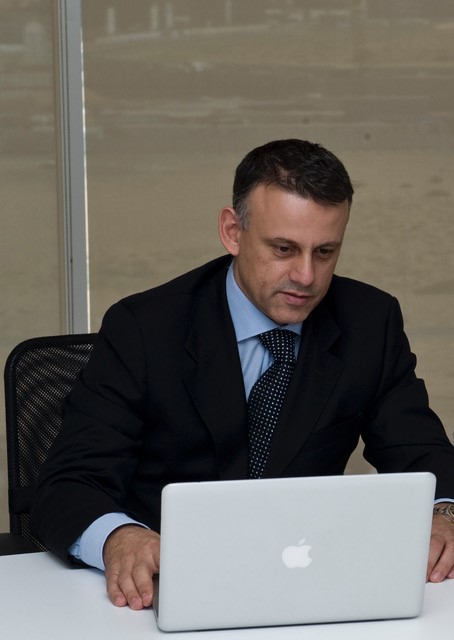
Although the Covid-19 pandemic isn’t over yet, there has been much discussion on the idea of a “post-Covid” economy, especially with the beginning of vaccination efforts in some countries. With markets throughout the world suffering the economic effects of the virus, experts have been looking towards the future –– and one of the topics that often comes up is the price of gold.
In August, the price of gold exceeded US$ 2,000 an ounce for the first time, driven by multiple factors. However, in November, advancements in Covid-19 vaccines led to a decrease in this trend, a result of the turbulent period we are going through.
“Regardless of the market volatility and the price changes that could occur over a given period of time, the fundamental fact is that the price of gold over the course of 2020 has reached an all-time high, and this, in my opinion, is very good news for the world economy,” explains Franco Favilla, founder and CEO of Seasif, a multinational company active in the extraction and trading of gold and oil.
According to Mr. Favilla, the main problem of the pre-Covid economy was the completely arbitrary nature of international finance. At one time, a ton of gold corresponded to a ton of currency, but since the 1980s, and at an impressive rate since 2000, the gap has widened enormously, so much so that today the relationship between the world’s currencies and gold is enormously unbalanced.
Total gold reserves around the world cover only 30% of currencies. This means there is nothing to cover and guarantee the value of money. In short, money has turned into a pure convention, a pure agreement between parties acting outside the market. Gold, on the contrary, guarantees democracy, because it protects savers and the market, offering an objective value for parameterizing every transaction.
“My hope, therefore, is that the crisis caused by Covid-19 will help to change finance, making it less ‘phantom’ and more linked to an objective dimension, based on gold, with obvious advantages for the real economy. Gold protects consumers, the most important component in any economic system: if you don’t have a market made up of consumers with a certain level of wealth, how can you sell? To whom? Consumer protection must come first, and gold is one of the main ways of protecting them,” states the CEO of Seasif.
Sustainability has also been at the forefront in discussions about the post-Covid world, as countries look towards establishing a more resilient global economy, one able to better withstand such events in the future –– and “green gold” may well be a part of that future. Green gold, in a sense, can be considered the “gold of the future” due to its ethical and sustainable extraction process. Seasif produces green gold, with a department entirely dedicated to green, and has allocated economic incentives to its continued production.
Even as 2020 draws to a close, the future may still look uncertain. But for those searching for greater security, gold may be one of the few certainties left.
-

 Technology12 months ago
Technology12 months agoHow Virtual Fly Elevates the World of Flight Simulators
-

 Travel12 months ago
Travel12 months agoImmerse Yourself in Nature: Explore Forest Bathing with a New Guidebook
-

 Europe12 months ago
Europe12 months agoBarcelona and Athens: cities that will leave an everlasting impression
-

 Health12 months ago
Health12 months agoExperience in clinical quality: What is it, and why is it important?
-
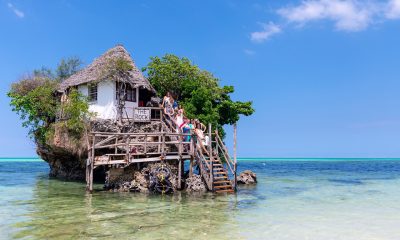
 Travel9 months ago
Travel9 months agoEnjoy a luxury holiday in Zanzibar
-

 Culture and Lifestyle8 months ago
Culture and Lifestyle8 months agoDo you want to surprise a special someone?
-

 Business8 months ago
Business8 months agoServiceNow Development Consultancy: Business Process Automation as Disruptive Technology
-

 Environment8 months ago
Environment8 months agoThe Future of Fashion: The Rise of Eco-Conscious Brands in the Luxury Market

